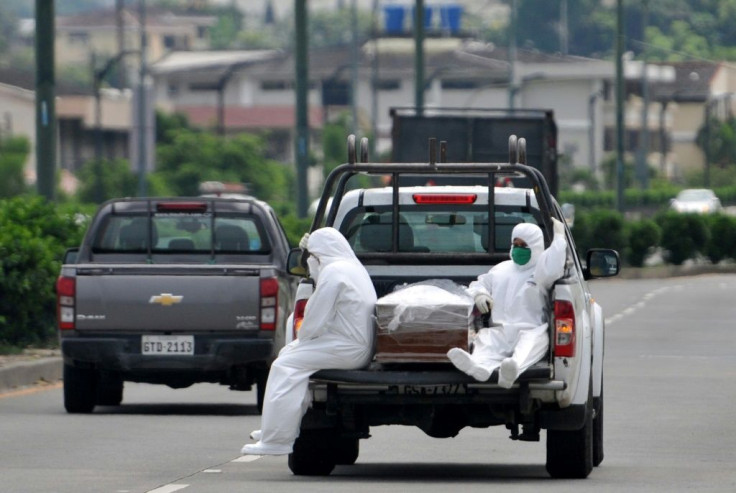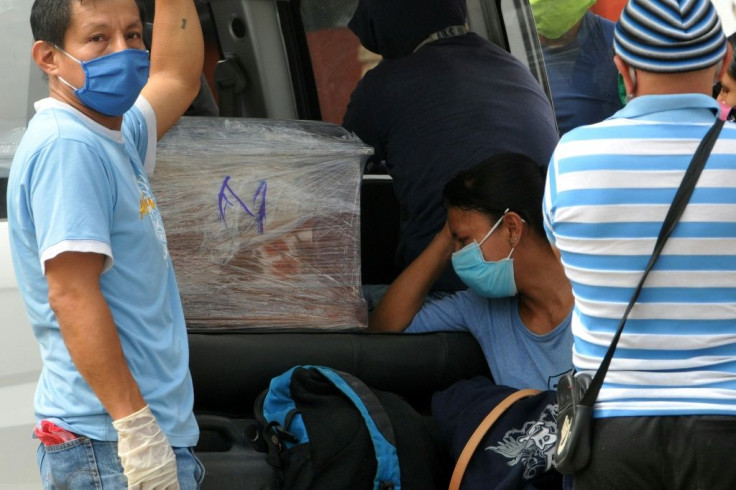Misinformation And Coronavirus Hand-in-hand In Ecuador Outbreak
By the time the coronavirus pandemic spiraled out of control in Ecuador, misinformation was already spreading on the internet with reports of corpses being thrown into the sea, bodies washing up on beaches and miracle cures aplenty.
Misinformation was already propagating in Latin America several weeks before the virus itself.
By late January, videos were being shared widely on social media purportedly showing the live animal market that was the focus of the Chinese outbreak late last year. However, the images were not of Wuhan but of Indonesia, 3,200 kilometers (2,000 miles) away.
Then conspiracy theorists across Latin America accused Bill Gates and US scientists of being behind the coronavirus outbreak.
By the time China registered 80,000 infections and 250 deaths on February 29, Ecuador was reporting its first case, Brazil still had only one and Mexico three.
A month later, Ecuador's caseload had exploded to 2,800.
Health services, morgues and funeral homes collapsed under the strain, and misinformation spread like wildfire, with tangible consequences for Ecuadorans.

"Don't buy fish! Coronavirus dead are thrown into the sea in Ecuador and Peru," said the caption on two videos shared tens of thousands of times on social networks.
Factcheckers revealed that one video was of the bodies of migrants washed ashore on a beach in Libya in 2014. The other featured the transfer by boat of a corpse that the victim's family said had not been taken from the sea.
"I'm a seafood merchant. The lies and false videos have affected my sales," a trader from Ecuador told AFP Factual via WhatsApp.
Legitimate stories about Ecuador's crisis proliferated, including reporting on the authorities' very real problem of how to dispose of an increasing number of dead in Guayaquil while the city's morgues and funeral services were overwhelmed during a 15-hour daily curfew.
But the real story quickly became clouded by misinformation, as photos of mass graves dug in open countryside were frantically shared on social media.
However, of those checked by AFP Factual, one photo was taken in Mexico in 2018 and the other -- while taken in Ecuador -- dated from 2016 and had no link to the pandemic.
"All the attacks were aimed at destabilizing the government," the Ecuador presidency's communications office told AFP.
It gave as an example "the supposed burning of bodies in the streets of Guayaquil, which was taken up by news services all over the world, when in reality the images were of burning furniture or tyres."

Fake stories snowballed on Facebook, WhatsApp and Twitter. The government said it identified 25 groups spreading misinformation via Telegram and WhatsApp, with hundreds of users.
The government began a campaign to clamp down on fake stories and expand corroborated information on the virus and its true effects on the country.
Among other things, it used federal departments to debunk more than 300 pieces of false information since March.
The government also used Facebook and Google to publicize its own health information and ensure it remained on top of search engine results.
"During the COVID-19 health emergency, this disinformation campaign grew," the government communications service said.
According to data from the International Fact-Checking Network (IFCN), nearly 1,000 false stories circulating in Latin America have been debunked since January 24 -- especially stories from Brazil, Colombia and Mexico.
"The two categories of falsehoods that attract the most attention are about 'authorities' -- that is, disinformation of a political nature -- with 230, and those about false cures, with 181 cases," the IFCN said.
As in other regions, misinformation about home remedies flourished online, with posts prescribing cures including eating garlic and gargling salt water and vinegar, all widely debunked.
Venezuela's President Nicolas Maduro published such a remedy in March. Twitter took it down.
Health authorities and experts agree: these remedies at best can relieve symptoms but are no cure for the coronavirus, nor will they prevent its spread. They warn that ingesting any of these products in large quantities can be harmful to health, even fatal.
Injecting sea-water -- as hundreds have done in Ecuador -- can be harmful "because the body is going to draw water from the tissues to lower the level of salt in the body," Juan Jose Yunis, professor of genetics and immunology at the National University of Colombia, told AFP.
Brazil, Peru and Mexico have since displaced Ecuador, with its 40,000 cases and 3,400 deaths, from the top of the chart of South America's worst-affected countries.
But the dramatic pictures from Guayaquil -- the real ones -- continue to be confused in the public mind with misinformation, illustrating the size of the task facing fact-checkers.
© Copyright AFP 2024. All rights reserved.





















